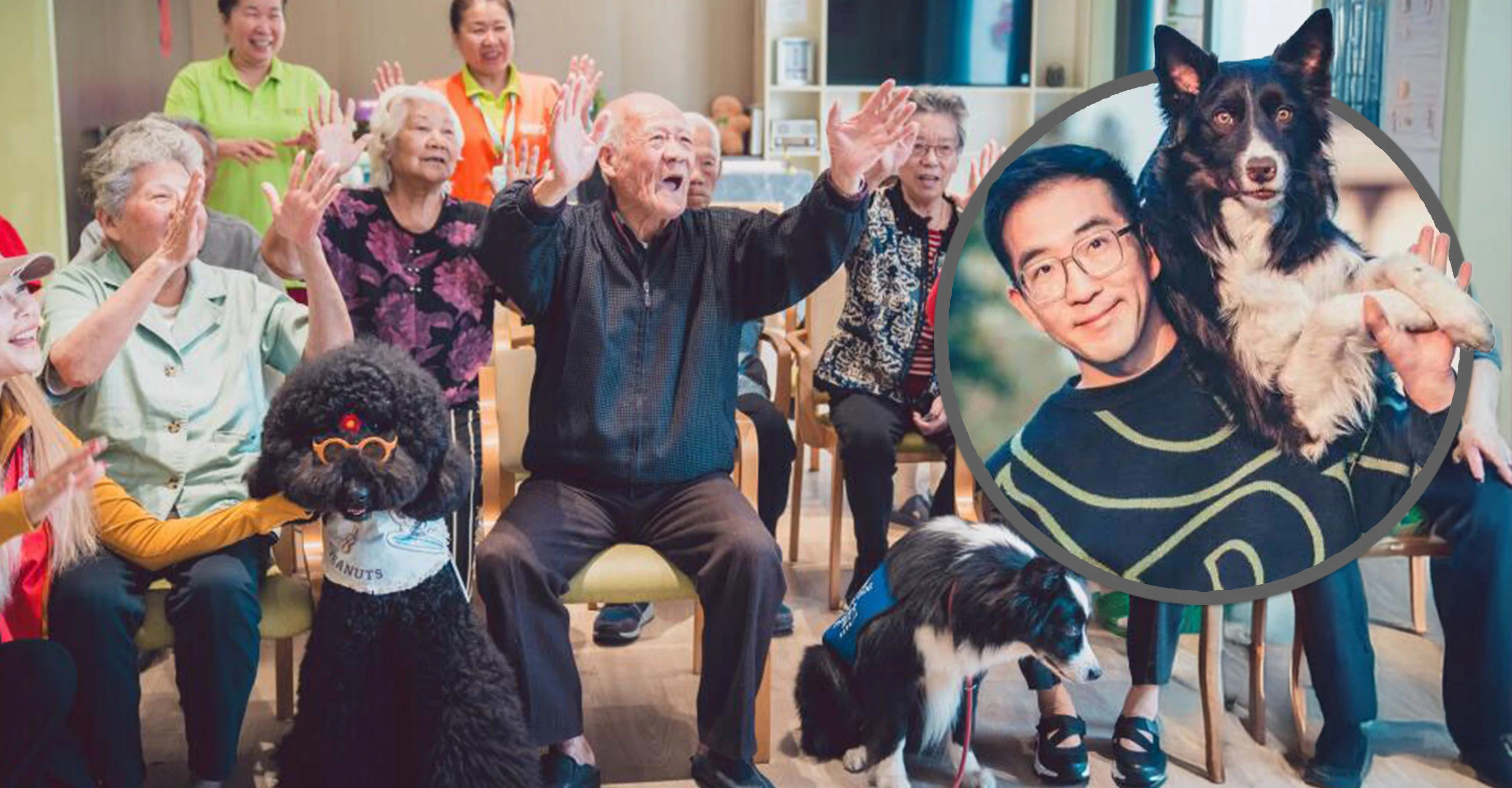Copyright scmp

A speech by a prominent exponent of dog therapy in China, who gave up a well-paid job to focus on his canine passion, has gone viral online. Wu Qi, known as “the father of China’s therapy dogs”, pioneered a scientific animal-assisted public welfare programme in the country. The 44-year-old’s recent speech about his experience went viral online, raising awareness of the social value of therapy animals and the importance of scientific pet training. Wu, from eastern China’s Zhejiang province, graduated with a computer science major at the prestigious Nanjing University and had a well-paid job at a gaming company. In 2006, he quit what was widely considered a great job and entered the pet industry. He first opened a pet park for two years, then a pet shop in a residential compound. His father disapproved of his decision, called Wu’s friends and relatives to ban them from lending him money as well as badgering him to close the shop. But Wu never thought of giving up. As a child with minor autism, it was his first pet dog that he picked up from a rubbish bin at the age of nine that taught him to communicate with the world. He kept a second pet dog, a husky, when he grew up. After going home to discover a sofa torn to pieces by the husky, Wu sent him to a dog training centre, but found his pet had become timid and sensitive on its return. This prompted him to self-study scientific pet training methods. As he gradually shared his pet training knowledge and experience online, Wu became famous locally and was invited to appear on a television programme with his husky in 2012. A mother with an autistic child approached him after the show. The child refused to talk to Wu, but consciously copied Wu as he interacted with the dog. The mother said it was the first time that she had seen her child imitate a stranger. The encounter inspired Wu to introduce scientific therapy dog volunteers and a training programme in China. More than a decade later, Wu’s Shanghai-based organisation, Paw for Heal, has trained more than 5,000 pets, 400 of them having passed professional therapy dog examinations that check various aspects of their behaviour. Wu also invited the owners and their dogs that have passed the test to become service dogs. His organisation served children with autism and depression, juvenile offenders, elderly people with dementia, patients in end-of-life care units, and even average people with huge work pressure. Wu said he was surprised when an elderly person with Alzheimer’s disease could remember the names of each dog they met a long time ago, even when they could no longer remember the names of their children. The organisation has served more than 150,000 people to date. When Wu started from scratch, society was unfamiliar with therapy dogs. Some staff he worked with were even scared of the service animals. Now, as the concept is more widely accepted, Wu said there is another problem: China only has hundreds of therapy dogs, a lot fewer than the 300,000 in the United States. Wu said two fifths of the therapy animals now in service were originally strays. He also expressed his wish for the establishment of animal protection law, which is now lacking in China, and more tolerance for pets in public facilities. Wu guarantees that each dog works no more than four hours a day and enjoys play and massage time. His father also understood his son’s persistence after he brought his therapy dogs back home to cheer the old man up. Wu’s organisation also offers paid therapy dog and human volunteer training services. He said his goal is to sustain the free service programmes with the organisation’s own income. “I hope Wu’s programme can be promoted nationwide. People should know that well-trained dogs do not bring us fear or injury, but warmth and happiness,” said one online observer.



